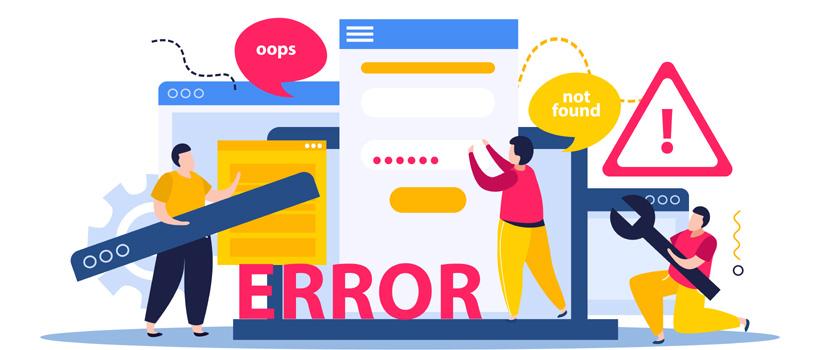Have you ever wondered what those small details at the end of a website’s name mean? Think about the .com, .net, or.org domain extensions. You’ve come to the right place if you have. This in-depth guide will clarify domain extension terminology and explain how they affect the identity of your website.
So, why exactly are domain extensions essential for your website? Well, think of them as your website’s online identity card. Just like your name gives people a sense of who you are, a domain extension reveals essential information about your website. It can indicate the purpose of your site, its geographical association, or even the industry it operates in. Forging credibility, attracting the correct audience, and increasing your online exposure, choosing the appropriate domain extension is essential.
But there’s more! We’ll also highlight and explain the significance of country-code suffixes like.us,.uk, and.ca for addressing regional markets. We’ll also look at the more recent specialist domain extensions, like .tech, .art, and .store, and how they relate to particular industries.
Of course, we will never forget the impact of domain extensions on branding and SEO. We’ll showcase real-world examples of businesses that have cleverly integrated their extensions into their branding strategies. And for those facing the challenge of finding an available .com extension, we’ve got you covered with tips and alternatives to consider.
Lastly, we’ll guide you through making the right extension decision by providing factors to consider and recommended tools to check availability. Plus, we’ll walk you through the domain registration process, ensuring a smooth experience.
So, get ready to embark on this enlightening journey through the world of domain extensions. Together, we’ll demystify their meanings, explore their impact, and help you find the perfect extension that resonates with your website’s unique identity. Let’s dive in!
Have you ever wondered what those small details at the end of a website’s name mean? Think about the .com, .net, or.org domain extensions. You’ve come to the right place if you have. This in-depth guide will clarify domain extension terminology and explain how they affect the identity of your website.
Understanding the domain name’s structure is crucial to comprehending the significance of domain extensions. The subdomain, the actual domain name, and the domain extension are the three primary parts of a domain name. A top-level domain (TLD), also known as a domain extension, is what appears at the end of a domain and has important significance.
It’s impossible to overlook the ubiquitous .com extension when discussing general-purpose extensions. Historically, .com was intended for commercial entities but has become a standard choice for businesses worldwide. It is recognized globally and instills a sense of credibility and familiarity.
Think about Amazon’s history of success. Amazon, one of the biggest e-commerce sites in the world, has used the.com extension to create a strong corporate identity. The expansion appeals to customers as a symbol of dependability and confidence.
Even though.com is very well-liked, general-purpose extensions like.net and.org have advantages. For instance, the.net extension is frequently connected to networking and technology, making it appropriate for online communities or enterprises that are connected to these industries. On the other hand, non-profit organisations and advocacy groups most frequently utilise the.org extension to emphasise their mission-driven approach.
Country code extensions, also known as ccTLDs, indicate the association of a website with a specific country or geographic region. These extensions can be powerful tools for targeting local audiences and boosting local SEO efforts.
For example, a business based in the United States might opt for the .us extension to establish a strong local presence. Similarly, a company operating in the United Kingdom could use the .uk extension to cater to the UK market.
One compelling case study is that of Canada’s official tourism website, www.travel.gc.ca. Using the .ca extension, they communicate their focus on Canadian tourism and provide potential visitors with a sense of authenticity and trust.
By incorporating country-code extensions, businesses can enhance their visibility in local search results and capture the attention of their target audience within specific regions.
The .com extension has achieved unparalleled dominance in the domain name space. One of the primary reasons for its prevalence is its historical significance. In the early days of the internet, .com was the first top-level domain to be established, and it quickly gained recognition as the default choice for commercial websites.
Furthermore, the .com extension became ingrained in popular culture and synonymous with the internet. It is widely recognized and trusted by users worldwide, making it the “it-choice” for businesses looking to establish a global presence.
Have you ever wondered what those small details at the end of a website’s name mean? Think about the .com, .net, or.org domain extensions. You’ve come to the right place if you have. This in-depth guide will clarify domain extension terminology and explain how they affect the identity of your website.
Have you ever wondered what those small details at the end of a website’s name mean? Think about the .com, .net, or.org domain extensions. You’ve come to the right place if you have. This in-depth guide will clarify domain extension terminology and explain how they affect the identity of your website.
While .com has undeniable advantages, it may not always be the best choice for every website. There are scenarios where alternative extensions can offer unique benefits depending on the nature of the business.
For instance, if you run a non-profit organization, the .org extension can convey your mission-driven approach and foster trust among potential donors or supporters. Similarly, industry-specific extensions such as .tech, .art, or .store can immediately communicate the focus of your website and resonate with your target audience.
Take the example of www.spotify.com. The popular music streaming service opted for the .com extension, which aligns with its global reach and commercial nature. However, many artists and musicians also use the .music extension to effectively highlight their industry-specific focus and connect with their target audience.
Numerous successful websites have thrived with the .com extension, leveraging its widespread recognition and trust. One prominent example is Google (www.google.com), which has become the go-to search engine for users worldwide. The .com extension reinforces Google’s authority and contributes to its branding as a reliable source of information.
Another notable success story is Amazon (www.amazon.com). As mentioned, Amazon has built an e-commerce empire using the .com extension. It has established consumer trust and credibility, contributing to its tremendous growth and dominance in online retail.
These examples demonstrate how strategic use of the .com extension can help create a strong online identity and contribute to the success of a website.
By understanding the prevalence and dominance of .com and exploring alternative extensions that align with your business goals, you can make an informed decision that effectively represents your website’s unique identity and resonates with your target audience.
The internet landscape has evolved, creating industry-specific extensions that align closely with businesses’ niches. These newer extensions, such as .tech, .art, and .store, go beyond the traditional .com or .net extensions, providing a more targeted and descriptive approach to domain names.
For instance, the .tech extension is ideal for technology-focused businesses, startups, or individuals who want to emphasize their involvement in the tech industry. It instantly communicates to visitors that your website is dedicated to technological advancements, innovation, or IT services.
Similarly, the .art extension caters to the artistic and creative community. Artists, art galleries, and cultural institutions can leverage this extension to showcase their work and tap into a niche audience that appreciates and seeks artistic content.
Another noteworthy industry-specific extension is .store, an excellent choice for e-commerce businesses. It conveys that your website is a dedicated online store, making it clear to potential customers that they can browse and purchase products directly from your site.
To illustrate the impact of industry-specific extensions, let’s showcase real-world examples of businesses that have successfully aligned their domain extensions with their industry.
A common question when considering industry-specific extensions is whether they impact search engine optimization (SEO). While domain extension is not a direct ranking factor for search engines, it can indirectly influence SEO in several ways.
Firstly, industry-specific extensions help create a relevant and coherent website identity. When users search for specific industry-related keywords, having an extension that aligns with their search query can improve click-through rates and user engagement.
Additionally, industry-specific extensions can make your website more memorable and shareable. When users encounter a domain name with a unique and relevant extension, they are more likely to remember and share it with others. This can increase organic traffic, backlinks, and social media mentions, positively impacting SEO.
However, it’s important to note that SEO success relies on various factors beyond the domain extension, such as high-quality content, proper website optimization, relevant keywords, and backlink profiles. While industry-specific extensions can enhance your branding and user experience, it’s crucial to implement comprehensive SEO strategies to achieve optimal search engine visibility.
Several local businesses have flourished by incorporating geographic extensions into their domain names. For example, www.pizzadelivery.nyc targets New York City residents, clearly offering pizza delivery services. This localized domain name helps them attract local customers and stand out in a competitive market.
In conclusion, industry-specific extensions allow businesses to align their domain names with their niches, enhancing branding efforts and targeting specific audiences. Additionally, geographic extensions are vital in local SEO, connecting businesses with their local audiences and improving visibility in particular regions.
In the competitive world of domain names, it’s not uncommon to find that your desired .com extension is already taken. However, there are alternative strategies you can employ to overcome this hurdle. One approach is to consider other top-level domain (TLD) options that align with your brand and objectives. Extensions like .net, .org, .co, or even newer domain extensions can provide viable alternatives. For example, if your desired domain name is “example.com” and it’s taken, you could explore options like “example.net” or “example.co.”
Getting creative with domain extensions can help you find unique and memorable alternatives when faced with limited options. Consider incorporating industry-specific extensions, such as .design, .studio, or .agency, that directly relate to your business. For instance, if you’re a graphic designer, a domain like “yourname.design” can convey your expertise and specialization. Additionally, you can explore domain hacks, which involve creatively using the extension as part of the domain name. An example of a domain hack is “bit.ly,” where “.ly” is the extension and also forms a part of the brand name “bitly.”
While .com has long been synonymous with websites, it’s essential to challenge the perception that it’s the only path to online success. Embracing alternative extensions allows you to differentiate your website and make it stand out. Today, with a wide range of TLDs available, including industry-specific and location-specific extensions, you can choose an extension that aligns more closely with your brand and resonates with your target audience.
Your domain extension contributes to your online brand identity by conveying important information about your business or industry. For instance, a .tech extension suggests a tech-focused website, while a .store extension indicates an e-commerce platform. Choosing the right extension helps create a cohesive brand experience and can influence how your audience perceives your website’s purpose and credibility.
Numerous companies have integrated their domain extensions seamlessly into their branding strategies, showcasing creativity and innovation. One notable example is “bitly.com,” a URL shortening service that uses the .com extension but incorporates it cleverly into its brand name. Another example is “deliciouslyella.com,” a popular food and lifestyle blog that utilizes the .com extension while including the founder’s name, Ella, in the domain.
Consistency is key to effectively integrating your chosen domain extension into your brand strategy. Ensure your extension aligns with your brand name, messaging, and overall visual identity. To reinforce its presence, incorporate your domain extension into your website’s design elements, such as logos, headers, and footers. Furthermore, leverage your chosen extension in marketing campaigns, social media profiles, and email signatures to strengthen brand recognition and memorability.
In conclusion, when faced with unavailable .com extensions, exploring alternatives and getting creative with domain extensions opens up new possibilities. By embracing alternative extensions and integrating them into your branding strategy, you can establish a unique online presence that resonates with your target audience. Remember, the right domain extension is not just a technical aspect but a powerful component of your brand’s identity.
Choosing the right domain extension requires careful consideration of several factors. Firstly, think about the purpose of your website. Are you running a business, a personal blog, or an organization? Different extensions can convey meanings and help your website align with its intended purpose.
Consider your target audience as well. A widely recognized extension like .com or .net may be preferable if you’re targeting a global audience. However, a country code extension such as .us or .uk can help establish a local presence if you’re primarily focusing on a specific country or region.
Your branding goals should also guide your extension choice. Consider how the extension will contribute to your brand identity and whether it aligns with your industry or niche. A creative or industry-specific extension can make your website memorable and enhance its overall branding.
Lastly, check the availability of the desired extension. While popular extensions like .com may be more challenging, numerous alternatives are available. Assess the availability of the extension you want and be open to exploring other options that still resonate with your brand.
Several online tools can quickly determine whether your desired extension is available for registration to simplify the process of checking extension availability. Tools like GoDaddy, Namecheap, or Domain.com provide user-friendly interfaces to search for available extensions and suggest alternatives if your preferred option is already taken. Utilize these tools to save time and make an informed decision.
It’s time to register your domain after choosing your extension. The following steps are often included in the process:
In conclusion, domain extensions are essential for creating a distinctive online brand for your website. You can make a choice that is in line with your vision by taking into account the function of your website, your target audience, your branding objectives, and the availability of extensions.
Accept the chance to reshape your online identity and make an impression on your visitors. Select a domain extension that captures the distinctive identity of your website and appeals to your target market. To develop your online brand, keep in mind that your domain extension is both a technicality and a strong instrument.
Take everything you’ve learned and been inspired by, and confidently move forward with developing your internet presence. Let your selected domain extension act as a guide for developing intriguing content, optimising your website for search engines, or connecting with your audience.
If you need help with domain registration, website creation, or digital marketing and are prepared to take the next steps in establishing your online presence, go no further than Monarch Web World. Our specialists are committed to assisting you in developing compelling online experiences that are consistent with your objectives.
To learn more about our offerings and how we can help you on your online journey, contact us. Profit from collaborating with a dependable partner who can bring your website’s distinct identity to life. Contact Monarch Web World immediately, and we’ll assist you in enhancing your internet presence.













